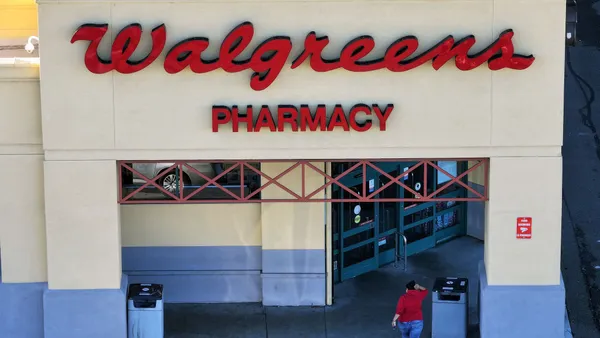 Filling Unmet Needs for Patients
Filling Unmet Needs for Patients
David Meek, Executive VP and President, Oncology, Baxalta, talks about how pharmaceutical companies can bridge the research gap in areas of
high unmet need.
PV: What do you think is needed to translate scientific advances into real benefits for patients?
Meek: Collaboration is essential. It is our duty as an industry to work together to harness and share all the data that are being generated from clinical trials and preclinical trials to bring new drugs to market.
Collaboration creates opportunities to provide positive synergistic effects for patients. For example, at Baxalta we have collaboration agreements with academic centers and oncology cooperative groups.
One global co-development collaboration we’re particularly excited about is with Merrimack Pharmaceuticals. Together, we are investigating new indications for nanoliposomal irinotecan.
(Editor’s Note: In September 2014, Merrimack entered into an agreement with Baxalta, to develop and commercialize the drug outside of the country. The drug — MM-398 — in combination with 5-fluorouracil and leucovorin, received priority-review status from the FDA as a treatment for metastatic pancreatic cancer patients who have had gemcitabine-based therapy.)
PV: How can pharma companies such as Baxalta collaborate effectively?
Meek: First and foremost, the focus is to keep the patient at the forefront. Our primary objective is to make a significant improvement in the lives of patients.
Secondly, there needs to be alignment. The objective should be to align on what’s best for both companies. What’s best for treating patients is what’s best for companies.
PV: Why is having a global focus important in today’s oncology market?
Meek: Cancer and cancer care are global issues — knowledge is rapidly being communicated throughout the entire world. Treatment guidelines, whether in the United States or Europe, are often considered by practicing physicians throughout the world. Health authorities, investigators, practicing clinicians, and even patients talk with each other.
 Our primary objectives are to make our assets available globally and to leave no patient behind. Healthcare doesn’t have borders. Every program that we have, we want to make available to patients all over the world.
Our primary objectives are to make our assets available globally and to leave no patient behind. Healthcare doesn’t have borders. Every program that we have, we want to make available to patients all over the world.
We begin our global regulatory dossiers early in the process; at the same time we’re developing the dossiers for the FDA and EMA, we’re also working on the next round of dossiers for additional countries to truly globalize products.
Additionally, transparency initiatives that the major global health authorities are adopting are beneficial to all of us; we can use the same data to talk to the different health authorities with one voice.
Organizationally, we have created an intercontinental division and we’ve prioritized our markets: Australia, Asia Pacific, and the BRIC markets. We have a world-class global supply chain in place so we can deliver all of our assets around the world.
We also have medical and commercial infrastructures in these major markets around the world. We have operations in more than 100 countries, and this global footprint helps us when we are partnering with small oncology biotech companies that may not have the global footprint to develop and commercialize their assets. We can offer our global capabilities and be a partner of choice for these companies.
PV: Why is talent acquisition important for bridging gaps in unmet needs?
Meek: We are looking for people who are motivated by purpose, and by that we mean people who have a true patient focus. As a company we are delivering oncology drugs to people with cancer and this is very much a motivator for the associates who join our company.
Our team is comprised of people who are oncology experts. Our objective is to be an oncology development and commercial powerhouse, so we look for people who have that experience. They come from big pharma, biotech, and academia. This is a very diverse group of people who have been in the marketplace for a number of years and who have been successful in the marketplace so we can rapidly develop and commercialize the products that we have. (PV)










